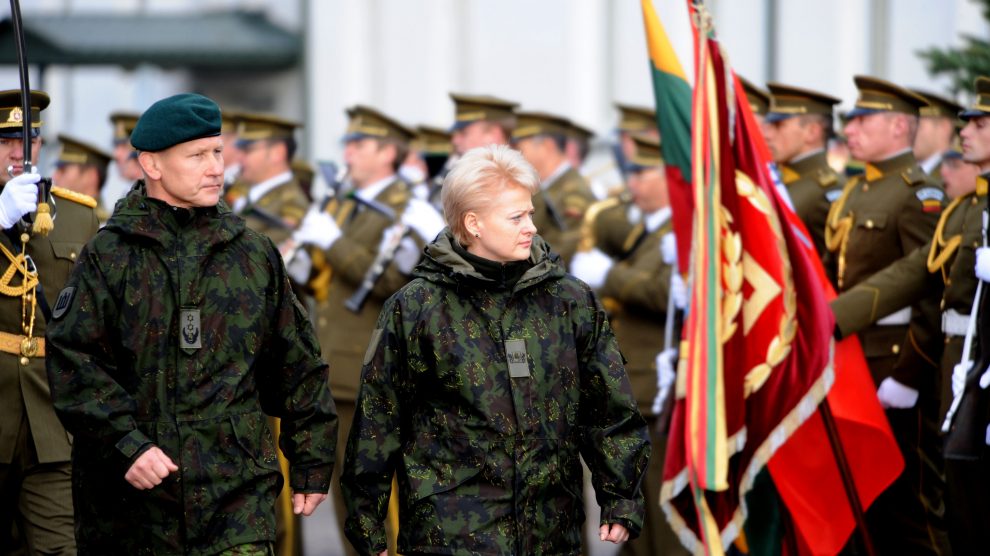All NATO chiefs so far have come exclusively from Western Europe. It is time for a secretary general from the East.
In March, a month after Russia launched its full-scale invasion of Ukraine, NATO members decided to extend the term of Secretary-General Jens Stoltenberg by a year, until September 30, 2023.
- Russia’s war crimes in Ukraine should lead to strengthening of international justice system
- Should NATO enter the Russian-Ukrainian fray?
- The US must get tough with NATO members brazenly backsliding on core values
The decision came after US President Joe Biden and other NATO leaders agreed to extend Stoltenberg’s term at a NATO summit in Brussels, citing “the biggest security crisis in a generation”. His term was due to expire in September 2022.
But with a new job as the governor of Norway’s central bank already lined up, it is unlikely that Stoltenberg’s term will be extended beyond next year, meaning that sooner rather than later, NATO must turn its attention to selecting a new secretary-general.
That the alliance’s next leader could for the first time come from a country in Central and Eastern Europe has long been a possibility. That NATO member countries in the East have spearheaded its response to Russia’s invasion of Ukraine now makes it a probability.
The likely front-runners
There is no shortage of suitable candidates.
The favourite among NATO insiders is thought to be Dalia Grybauskaitė, president of Lithuania from 2009 until 2019, and known as “the Iron Lady of the Baltics” for her tough stance on Russia.
Throughout her time in office, she was one of few European leaders to openly criticise Russia for its deployment of troops in eastern Ukraine, as well for the downing of a Malaysia Airlines passenger plane in 2014, comparing the tactics of Russian President Vladimir Putin to those of Stalin and Hitler and referring to Russia a “terrorist state”.
Estonia’s combative prime minister Kaja Kallas, as well as the country’s former president, Kersti Kaljulaid, also both fit the bill, although Kallas, less than two years into her first term as PM, may not wish to abandon national politics just yet.
Kaljulaid however, who was last year on the verge of becoming the new boss of the Organisation for Economic Co-operation and Development (OECD) before deciding that accepting the position amidst the Covid-19 pandemic in Estonia would “not be the best solution” should certainly be considered another of the favourites.
She is helped by the fact that Estonia has – per capita – offered more military support to Ukraine than any other country.
Russia’s invasion of Ukraine meanwhile has probably reduced the chances of Kolinda Grabar-Kitarović, who served as the president of Croatia from 2015 to 2020, and before that, as NATO assistant secretary general for public diplomacy, from taking the job.
Grabar-Kitarović, whose policy platform during the 2019 Croatian presidential race (which she lost) was criticised for veering too close to the far-right, has also been accused of being cosy with Moscow.
During her time as president, Croatia increased business relations with Russian giants such as Gazprom and Sberbank, and while on a trip to the Russian capital in 2017, Grabar-Kitarović called for the “expansion of cooperation” between the two countries.
Poland, Romania
Poland is also likely to nominate a strong candidate, although it is doubtful if the most qualified person for the job, Donald Tusk, a former PM and EU Council president, would receive the backing of his own government.
Unofficially at least, Klaus Iohannis, Romania’s president, has for some time let it be known that he would happily take the job, although the fact that NATO’s current number two, Mircea Geoana, is also Romanian, probably means that he is not a serious contender. It is highly unlikely that NATO would want its two most senior figures to share the same nationality.
Amongst the figures from outside the region believed to have a reasonable shout at taking the position are the former British Prime Minister Theresa May, and the former Italian Foreign Minister and EU foreign policy chief Federica Mogherini.
Neither is viewed with any great enthusiasm in Washington, however.
Photo: Dalia Grybauskaitė (Lithuanian Ministry of National Defence)
Unlike many news and information platforms, Emerging Europe is free to read, and always will be. There is no paywall here. We are independent, not affiliated with nor representing any political party or business organisation. We want the very best for emerging Europe, nothing more, nothing less. Your support will help us continue to spread the word about this amazing region.
You can contribute here. Thank you.



